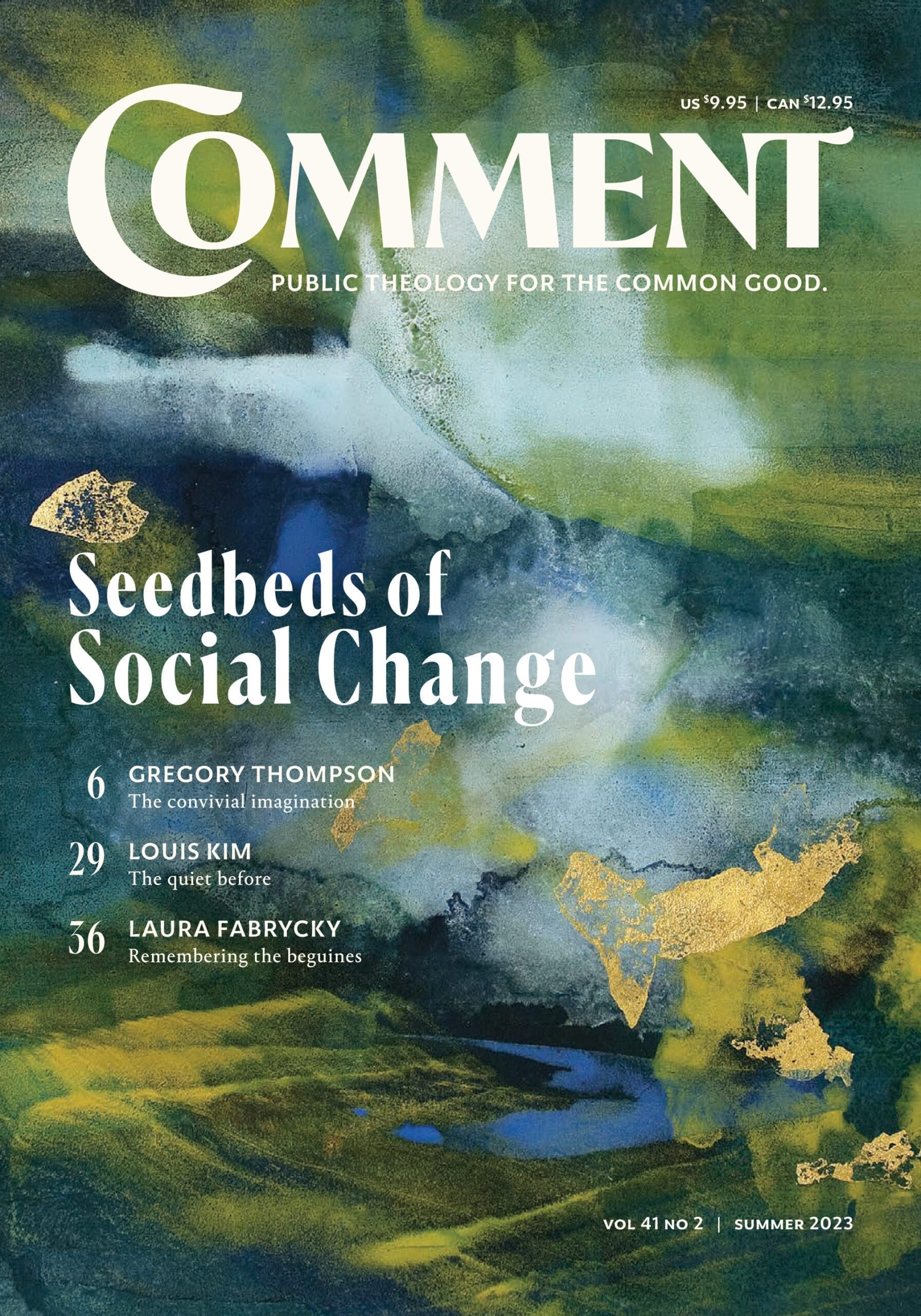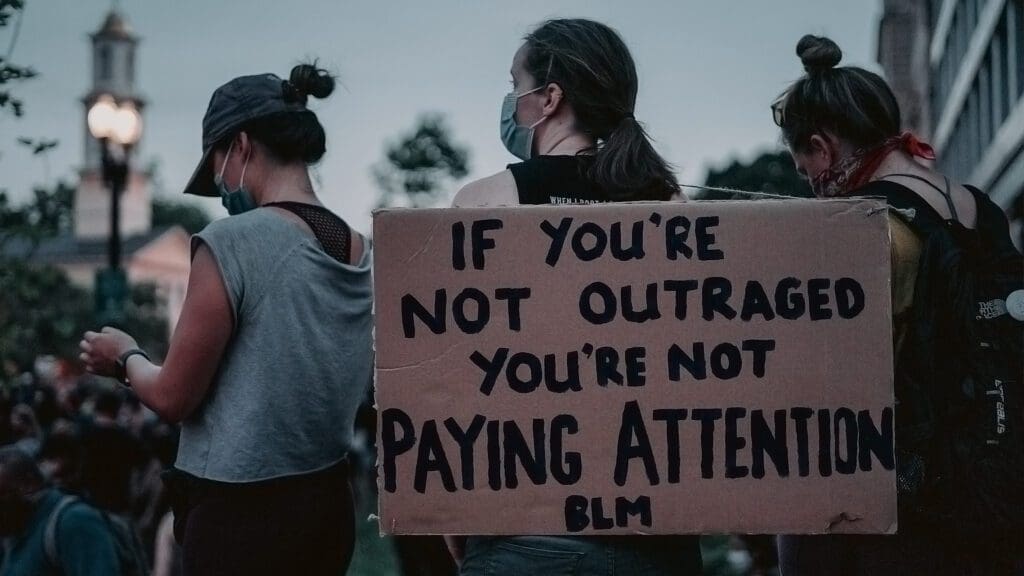W
What creates a new era? What are the nutrients in those seedbeds that become nourishers of redemptive history?
For those who have not been following along, Comment and our accompanying podcast The Whole Person Revolution have undertaken a six-month exploration of social change—what it is, how it happens, what we tend to miss in our impatience for quantifiable results. Where our spring issue took a philosophical approach to these questions, this second issue is more like a scatterplot almanac—select histories of social movements as they begin in what Gal Beckerman calls “the quiet before,” the fragile ferment of instinct and hope.
We are interested in this fertile underground because we live in a culture that defaults to celebrity even though it yearns for community, and in an age that attends largely to that which is preened in public. We discount the processes of discernment and trust necessarily nurtured in private. There is an attractive mischief about turning instead toward more hidden beginnings: What is going on when that first trimester is successful, able to mature and birth new life? Is it possible for green shoots to grow on their own terms, not in response to a perceived threat, but rather as an outgrowth of love and a confident vision of the good?
As I’ve spoken with students of movements and steeped myself in the narratives you’re about to read, a kind of pattern has glimmered into focus: principles, ingredients, those nutrients in the soil that eventually bear fruit and change history’s direction for the better. Here they are, framed in the form of questions to provoke you into what we at Comment hope is a more honest public conversation about what true social change actually requires.
What is present when a redemptive movement is unfurling?
- A dream for all: Is there a logic concerned with the moral transformation of all, not just the protection of some? Is there a constructive vision elevated by a transcendent pulse, a telos anchored in love?
- Personalism: Are the called welcomed into conversion themselves, where the transformation of their own hearts and minds is the basis for changing the state of play for others?
- Embodiment: Is there an attempt to create an alternative world that approximates the vision, with boundaries, norms, and rituals established for a group of the willing to become the change they seek? Are there regular occasions of feasting and fasting?
- Moral articulation: Are behavioural norms articulated clearly? Is there an aspirational identity named and modelled?
- Co-creation: Are there opportunities for creative expression, in song, art, and collaborative work?
- Truth-telling: Has a space been created to tell and receive the truth? Is there a structure for forgiveness and mutual accountability?
- Proximity to pain: Are participants close to those who suffer?
- Sacrifice: Is the leader willing to lead vulnerably and sacrificially, even to bodily death? Is he or she practicing what he or she is preaching?
- Concreteness: Are abstractions, anonymity, and vague verbiage seen for the sophistry they are? Does the leader have the clarity of conviction to speak plainly from the wisdom earned from working within particular trenches?
- Holy friendship: Does the leader maintain a multi-generational circle of friends who will encourage, admonish, and speak truth to him or her in private?
- An unlikely community: Is the seedbed community intentional about inviting different ways of knowing, skill sets, and vocational roles? Is it leavened by those our world considers “weak”?
- Social architecture: Is the woof and warp of institutions respected and leveraged? Does the seedbed have a strategy to affect the grain of organizations, and not simply convene and nourish their leaders as individuals? Is there a vision for organizational coordination?
- Competence: Does the seedbed value mastery of a domain, deploying excellence in craft toward the fulfillment of the dream?
- Wisdom about time: Is the seedbed community patient? Does it take the long view that understands the important role of the hidden and the underground, even as it is vigilant in moral formation and trust-building so as to be resourceful when crises come?
- Children: Are children carried by the community, if not in labour and presence, then in conscience and telos?
- Fruit: Is the life of the seedbed leading to whole and integrated persons, reconciled relationships, a spillover of vitality and deep connection? Are selfishness, pride, stagnancy, and chaos actively fading out?









